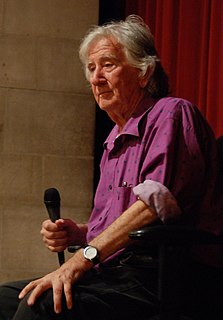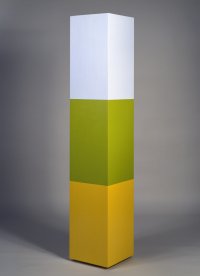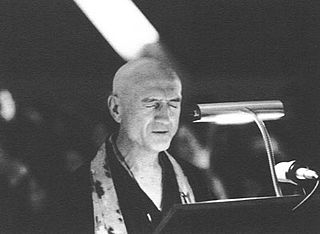A Quote by Rollo May
The human dilemma is that which arises out of a man's capacity to experience himself as both subject and object at the same time.
Related Quotes
I find that somehow, by shifting the focus of attention, I become the very thing I look at, and experience the kind of consciousness it has; I become the inner witness of the thing. I call this capacity of entering other focal points of consciousness, love; you may give it any name you like. Love says "I am everything". Wisdom says "I am nothing". Between the two, my life flows. Since at any point of time and space I can be both the subject and the object of experience, I express it by saying that I am both, and neither, and beyond both.
The psyche is the inward experience of the human body, which is essentially the same in all human beings, with the same organs, the same instincts, the same impulses, the same conflicts, the same fears. Out of this common ground have come what Jung has called the archetypes, which are the common ideas of myths.
God is not a person; God is manifestation itself. We think that God is a superhuman person, but God is not a person. He is not a subject. We can never experience God in a subject/object experience. God is what makes a subject/object experience possible. We can never see God or experience God as separate from ourselves. God is a being but there is no division.
Theatre has nothing to do with buildings or other physical constructions. Theatre - or theatricality - is the capacity, this human property which allows man to observe himself in action, in activity. Man can see himself in the act of seeing, in the act of acting, in the act of feeling, the act of thinking. Feel himself feeling, think himself thinking.
Future arises out of your misery, not out of your celebration. A really celebrating person has no future; he lives this moment, he lives it totally. Out of that total living arises the next moment, but it is not out of any lust. Of course, when out of celebration the next moment arises, it has more capacity to bless you. When out of celebration the future arises, it goes on becoming more and more rich. And a moment comes when the moment is so total, so whole, that time completely disappears.
Aristotle said time is a measure of change, and this movie is about changing in time, through time, while remaining the same person. That's a philosophical paradox and a moral dilemma. But 'Casablanca' says it's possible. You can have both. That's what it means. And that's my wish for you: that you would have both.
The difference between men and women is inalienable. It is not a political fact, subject to cultural definition and redefinition, but a physical verity. We do truthfully experience our lives differently because our bodies are different. It is in what we do with our experience that we are the same. We feel, absorb and examine with the same intensity, and intense experience honestly examined informs the art of both sexes equally. ... The power of imagination illuminates all human lives in common.
The cause of all the blunders committed by man arises from this excessive self-love. For the lover is blinded by the object loved; so that he passes a wrong judgment on what is just, good and beautiful, thinking that he ought always to honor what belongs to himself in preference to truth. For he who intends to be a great man ought to love neither himself nor his own things, but only what is just, whether it happens to be done by himself, or by another.
Good work is no done by "humble" men. It is one of the first duties of a professor, for example, in any subject, to exaggerate a little both the importance of his subject and his own importance in it. A man who is always asking "Is what I do worth while?" and "Am I the right person to do it?" will always be ineffective himself and a discouragement to others. He must shut his eyes a little and think a little more of his subject and himself than they deserve. This is not too difficult: it is harder not to make his subject and himself ridiculous by shutting his eyes too tightly.
Desire is a word I'm tired of. I've been living with that word for years. Yes, of course, we're all desiring machines. I have sometimes wondered what people would want, if there were no advertising. And death, what other subject is there? It's the subject. It's our subject. It's the great human dilemma, that we die and know we will.
At this point, an urgent question arises: [...] Is it our duty to seek to become a thorough and complete human being, one quite sufficient unto himself; or, on the contrary, to be only a part of a whole, the organ of an organism? Briefly, is the division of labor, at the same time that it is a law of nature, also a moral rule of human conduct; and, if it has this latter character, why and in what degree?






































